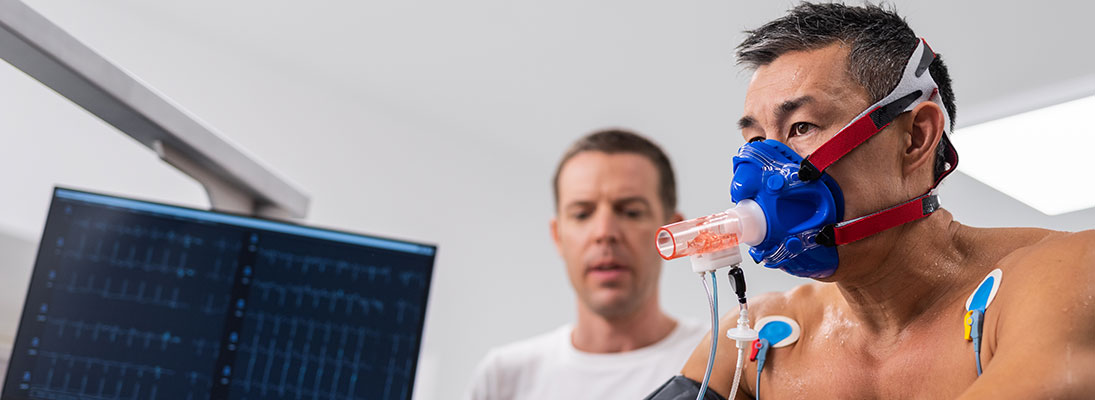
Pulmonary function tests (PFTs) are noninvasive tests that evaluate lung function and can help your doctor diagnose certain lung disorders and decide the appropriate treatment. PFTs can also identify improvement or decline in your lungs to determine if a change in your current treatment is necessary.
All PFTs at Community Medical Centers are interpreted by board-certified pulmonologists. All of our staff are registered respiratory therapists, and most are also registered pulmonary function technologists.
Why would you need Pulmonary Function Testing?
There are a number of reasons why you might have PFTs done. They can be part of a routine physical. They are also used to evaluate occupational health hazards from professions related to agriculture, coal mines, poultry farms or the military.
PFTs can be ordered by your doctor to help them diagnose or evaluate a variety of medical conditions, including:
Chronic lung conditions such as asthma, emphysema, chronic bronchitis and bronchiectasis (a condition where the airways become abnormally thick and wide)
Pre-surgery screening and post-surgery evaluation
Upper airway obstruction
Evaluation of heart or cancer medications’ effects on breathing
Evaluation of non-surgical treatments and therapies for lung conditions
Restrictive airway problems from scoliosis, tumors, or inflammation or scarring of the lungs
Asbestosis (a lung disease caused by inhaling asbestos fibers)
Scleroderma (a disease that causes thickening and hardening of connective tissue)
Weakness of breathing muscles due to neuromuscular conditions
Trending of lung function for progressive diseases
What are the risks of PFTs?
Pulmonary function testing presents minimal risk. Patients have reported symptoms such as lightheadedness, dizziness, coughing or shortness of breath during the procedures.
It’s not recommended you have a PFT done if you:
Have active tuberculosis or respiratory infection due to cold or flu
Had a recent heart attack or stroke
Have an acute chest pain
Had recent eye, chest or stomach surgery
Have an aneurysm in the chest, stomach or brain
Have stomach bloating that prevents taking deep breaths
Talk with your healthcare provider about any conditions you have to determine how these risks may apply to you.
What factors affect test accuracy?
To get an accurate test, you should wear loose, comfortable clothing to your appointment and be able to follow instructions during the test. Your full cooperation and participation is very important. We advise withholding taking certain pain medications that will make you sleepy during the test, and smoking or drinking alcohol for a period of time prior to testing. Detailed instructions will be provided to you, along with a list of respiratory medications to avoid before your test.
To ensure you and your doctor receive an accurate picture of how well your lungs are working, we use state-of-the-art equipment to measure functionality, and follow guidelines set by the American Thoracic Society (ATS).
Our licensed respiratory therapists are patient-focused and rigorously trained to provide safe and quality testing procedures. We walk you through every step to get the most accurate results possible, making sure you’re comfortable with the care you receive.
What testing services do we offer?
We offer these pulmonary function tests:
More information
Your doctor will typically order a combination of the above tests to get a well-rounded picture of your lung function. If you have any questions, please call us at (559) 459-3947.
We use cookies and other tools to optimize and enhance your experience on our website. View our Privacy Policy.
